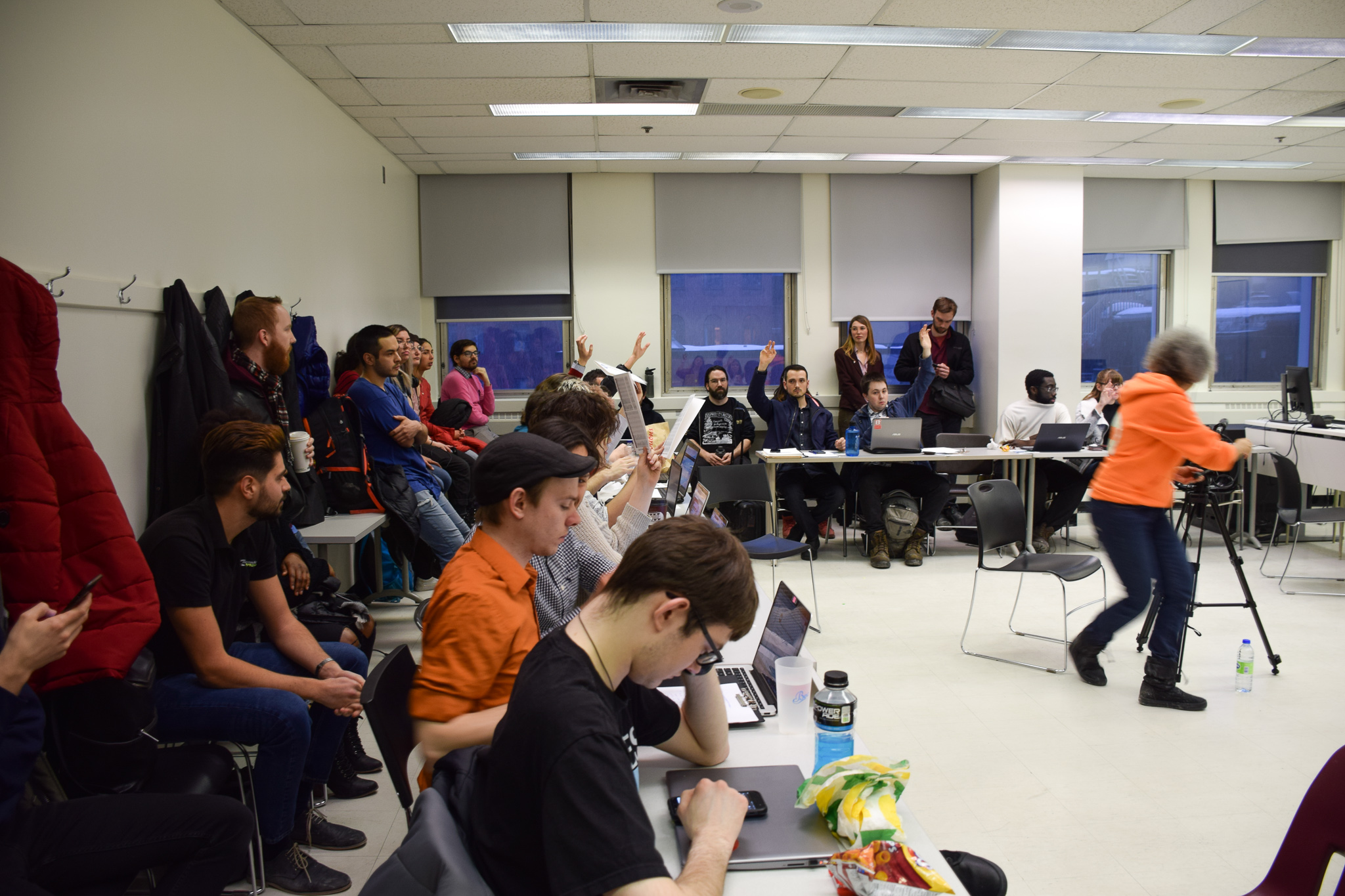Statement aims to change conversation around freedom of speech on campus
On March 13, the Concordia Student Union (CSU) voted in favour of a motion adopting new positions on academic freedom, free expression, and the right to protest. Moved by Finance Coordinator John Hutton, the newly-adopted motion was put forward in order to change the way students talk about free speech on campus.
Throughout the motion, Hutton points out issues affecting academic freedom on campus, such as “increasing control over research agendas by non-profit interests, increased casualization and precariousness in the academic workforce causing faculty to be reluctant to be vocal and government threats to operating grants issued to universities, which fail to enact policies limiting the right to protest.”
Moreover, the two-page motion outlines ten new policy positions that the CSU, as an organization, supports and will add to its book. They will support unionization of university faculty to secure and defend academic freedom and proper working conditions in their collective agreements.
The new free speech action also endorses the so-called “heckler’s veto,” by which a listener may disrupt or silence speech that they deem dangerous. The document says that this is often the only existing means for marginalized people to be heard in any capacity. By that statement, the CSU supports the right for students to speak up and to protest, and wants to protect it from governments and administrators that would try to limit it.
The document also reads: “The CSU shall reasonably seek to represent a wide variety of student perspectives while affirming that as a democratic, independent organization the union is not required to endorse or provide resources to individuals, causes, or organizations which do not align with the CSU’s position.”
In the motion, the CSU will adopt to its positions book that they “seek to elevate the voices of marginalized communities to ensure that the right to freedom of expression is equally held by all in society.”
By adopting the action, Hutton hopes the CSU will be able to focus on these issues affecting academic freedom on campus. “Now the CSU has a comprehensive policy on academic freedom and free expression, and we can move forward with using that right to free speech and to protest to advance student interests,” said Hutton.
However, councillor James Hanna introduced the first free speech motion at the meeting and used the Chicago Statement as an example of how the university should support the rights of its students to express their ideas, even if they disagree with those ideas. The Chicago Statement, first adopted by the university of Chicago, recognizes free speech on campus and also defends free and open inquiry in all matters.
“The Concordia Student Union acknowledges and supports the fundamental rights of student groups who express their values, ideas, positions even if the unions and its officers disagree with them,” the motion read.
Moreover, according to Hanna, the CSU could have used the opportunity of a newly-adopted free speech motion to help students who want to use their right of freedom of expression by inviting high profile speakers on campus, as well as to create discussions between students and speakers.
In comparing Concordia and McGill, Hanna said Concordia hosts fewer of these big talks. “McGill have weeks when libertarians get to speak on campus; they have weeks for left-wing people [to] speak; and I want that stuff to come back at Concordia,” said Hanna.
Hutton brought the motion forward after deciding the CSU is overdue to change the vision students have about free speech at the university.
Photo by Gabe Chevalier.




